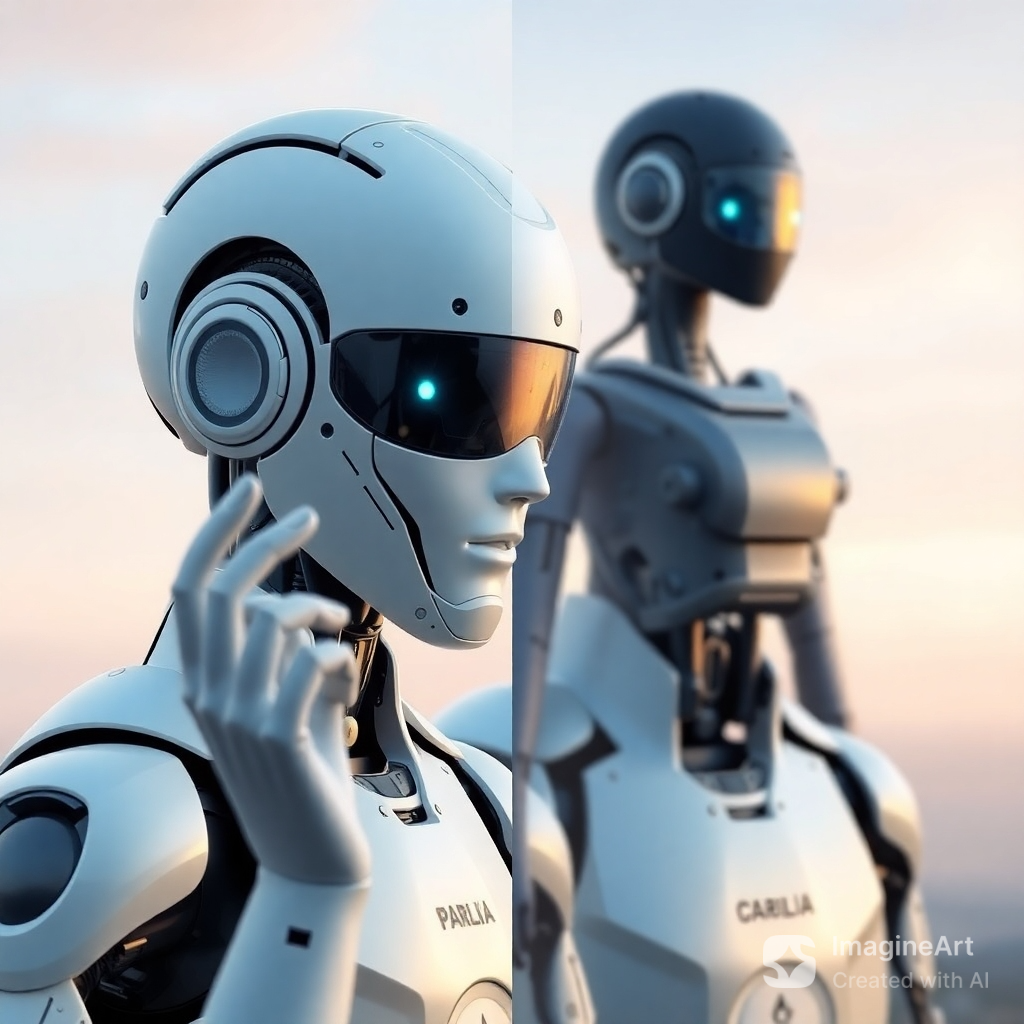Artificial Intelligence (AI) has transcended the realm of science fiction and become a cornerstone of modern living. From smart homes to personalized shopping experiences, AI is no longer a futuristic concept; it is a present-day reality. The integration of AI into everyday life is reshaping industries, enhancing convenience, and fundamentally altering how people interact with technology. This article delves into the profound ways AI is revolutionizing daily life, its current applications, and its potential to transform the future.
The Evolution of AI: A Journey from Fiction to Functionality
The concept of AI dates back to the mid-20th century when mathematicians and computer scientists began exploring the idea of machines that could simulate human intelligence. Early depictions of AI in science fiction often painted it as a double-edged sword—capable of both marvels and mischief. Fast forward to the 21st century, and AI has evolved from theoretical frameworks into tangible technologies. Breakthroughs in machine learning, neural networks, and data analytics have propelled AI from research labs into the hands of everyday users.
Enhancing Daily Convenience
One of the most noticeable impacts of AI is its ability to make routine tasks more convenient. Virtual assistants like Siri, Alexa, and Google Assistant have become integral parts of households, helping users set reminders, play music, and control smart home devices. These assistants utilize natural language processing (NLP) to understand and respond to human queries, creating a seamless interaction between humans and machines.
Smart home systems are another testament to AI’s transformative power. Devices such as smart thermostats, security cameras, and lighting systems leverage AI algorithms to learn user preferences and optimize functionality. For instance, a smart thermostat can analyze your daily routines and adjust the temperature accordingly, reducing energy consumption and enhancing comfort.
Personalizing Experiences
AI excels in analyzing vast amounts of data to deliver personalized experiences. This is particularly evident in the realm of e-commerce, where recommendation engines analyze browsing and purchasing behaviors to suggest products tailored to individual preferences. Streaming platforms like Netflix and Spotify also use AI to curate personalized content, ensuring users receive recommendations that align with their tastes.
Even in creative domains, AI is making its mark. For instance, AI-powered tools are enabling users to craft unique designs, manage event invitations, and produce creative content. An AI invitation maker, for example, can help users design professional and visually appealing invitations in a matter of minutes, saving time and effort.
Transforming Communication
AI is revolutionizing communication by enabling real-time translation and transcription services. Tools like Google Translate and AI-powered transcription apps facilitate cross-lingual communication, breaking down language barriers in both personal and professional settings. Chatbots, another AI-driven innovation, are improving customer service by providing instant responses to queries and resolving issues with minimal human intervention.
In workplaces, AI is enhancing collaboration through intelligent scheduling tools and project management software. By analyzing team availability and project deadlines, these tools can optimize schedules and streamline workflows, enabling teams to focus on creative and strategic tasks.
Driving Innovation in Healthcare
The healthcare industry is one of the most significant beneficiaries of AI. From diagnostics to treatment planning, AI is enhancing medical precision and efficiency. Machine learning algorithms can analyze medical images to detect conditions like cancer or fractures with remarkable accuracy, often surpassing human capabilities.
AI-powered virtual health assistants are also becoming increasingly popular. These tools can monitor patient symptoms, provide medication reminders, and even offer preliminary diagnoses based on user input. In addition, AI is playing a pivotal role in drug discovery, reducing the time and cost involved in developing new treatments.
Revolutionizing Education
AI is transforming the education sector by enabling personalized learning experiences. Intelligent tutoring systems can assess a student’s strengths and weaknesses, tailoring lessons to their unique needs. Platforms like Duolingo and Khan Academy use AI algorithms to adapt content based on user progress, ensuring an optimal learning curve.
Moreover, AI is making education more accessible. Speech-to-text and text-to-speech technologies are breaking down barriers for students with disabilities, while real-time translation tools are fostering inclusivity in diverse classrooms.
Enhancing Creativity and Entertainment
The creative and entertainment industries are being revolutionized by AI’s capabilities. AI video generator apps, for instance, allow users to create high-quality videos with minimal effort. By leveraging pre-designed templates and AI-driven editing tools, these apps enable both professionals and amateurs to produce visually stunning content. From promotional materials to personal projects, AI is democratizing video production, making it accessible to everyone.
In music, AI-powered software can compose original pieces, analyze trends, and even suggest chord progressions for musicians. In gaming, AI is being used to create more realistic characters and immersive storylines, enhancing the overall player experience.
Addressing Environmental Challenges
AI is also contributing to sustainability efforts by optimizing resource usage and reducing waste. In agriculture, AI-powered drones and sensors monitor crop health, enabling farmers to make data-driven decisions. Similarly, AI is being used in energy management systems to predict demand and allocate resources efficiently, reducing carbon footprints.
Furthermore, AI is aiding in climate research by analyzing large datasets to identify patterns and predict environmental changes. These insights are crucial for developing strategies to combat climate change and preserve natural resources.
The Road Ahead: Opportunities and Challenges
While the advancements in AI are promising, they also raise important ethical and societal questions. Concerns about privacy, data security, and job displacement need to be addressed to ensure AI’s benefits are equitably distributed. Governments, organizations, and individuals must collaborate to establish regulations and guidelines that promote responsible AI development and deployment.
Looking ahead, the potential applications of AI are virtually limitless. From autonomous vehicles to smart cities, the integration of AI into everyday life is expected to grow exponentially. As AI continues to evolve, it will not only enhance convenience and productivity but also redefine what is possible in human achievement.
Conclusion
Artificial intelligence has journeyed from the pages of science fiction to become a transformative force in modern life. Its ability to enhance convenience, personalize experiences, and drive innovation is revolutionizing industries and reshaping societal norms. While challenges remain, the potential of AI to improve lives and solve complex problems is undeniable. As we navigate this technological revolution, embracing AI’s possibilities while addressing its risks will be key to unlocking a smarter, more connected future.

